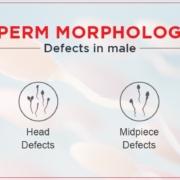Breaking Down Myths and Facts About IVF
Myths and Facts About IVF – Reproductive medicine has undergone a revolution thanks to in vitro fertilization (IVF), which has given hope to millions of infertile couples. IVF has been incredibly successful, but it has also given rise to many myths and misunderstandings. For those considering or undergoing IVF therapy, these beliefs can cause misconceptions and unwarranted anxiety. To empower people to make informed decisions about their reproductive journey, it is imperative that these beliefs are dispelled and that accurate information is provided.
Myths and Facts about IVF
Here are some of the following:

1. Children receiving IVF are not typical. Either they have inherited genetic defects or are predisposed to certain diseases.
IVF is a procedure that helps the conception process happen faster and increases the chance of it happening. The development and growth of the fetus and newborn are identical to that of a naturally created child. The baby born through IVF does not have any genetic defects or health problems. If an IVF child is born with an illness or problem, it is not because of the IVF process; rather, he could have inherited it from one or both parents.
In fact, before implanting the embryo into the uterus during an IVF pregnancy, your fertility doctor may recommend pre-implantation genetic testing. This helps them understand if the baby is likely to suffer from future illnesses or problems caused by a genetic defect. To produce healthy embryos, the embryologist also selects the healthiest sperm and eggs from the batch.
2. The IVF Process is Painful.
There are no additional discomforts or difficulties related to the IVF procedure itself. You will not feel any severe pain after extraction and implantation, although you may feel slight discomfort. Each person has a different pain threshold. As a result, you may experience discomfort during treatment that is noticeably different from another person. These injections are usually given after the transfer. You should prepare for an equivalent level of discomfort with infertility if receiving regular injections in your arms causes you anxiety or discomfort. However, unpleasant injections are no longer necessary thanks to modern notions such as the natural cycle.
3. IVF is Effective for Women of All Ages.
IVF is a viable option for women who have passed their peak fertility age and want to give conception one last chance, but it is not a guarantee. Compared to older women, women under 35 are significantly more likely to successfully conceive through IVF. Women’s egg reserves and quality begin to decline as they age. Women who have chosen to use in vitro fertilization (IVF) for their first or previous pregnancy can occasionally freeze their viable embryos for use in subsequent pregnancies. This way, people can still try IVF for successful conception even if their egg reserves decrease over time. However, given her current ovarian reserve and the quality of her eggs, the woman would be much less likely to conceive if she had not kept her embryos. Although women over 35 are less likely to conceive through IVF, those under 35 also do not have a 100% success rate. Attempts to conceive can also fail after IVF cycles, just as during natural conception. However, after consulting your IVF specialist, you will be able to determine the number of embryos to transplant.
4. IVF Results in Multiple Pregnancies.
Although many IVF treatments result in multiple pregnancies, this is not always the case. The concept is that when you turn to an IVF professional to help you get pregnant, the best eggs and sperm are selected to create embryos. Suppose you are lucky enough to have more than one viable embryo. In that case, you have two options: freeze the remaining embryos or attempt multiple pregnancies by implanting several embryos into your uterus. Multiple pregnancies occur when all the embryos implanted in the uterus successfully implant in the wall of the uterus.
5. The Only Treatment for Infertility is IVF.
No, IVF is only an option for same-sex couples who have tried another treatment. Otherwise, there are a variety of therapies that can improve your fertility health. After receiving treatment, you can try to conceive naturally and, in all honesty, you can even get pregnant naturally without the help of IVF. Many other options include in vitro fertilization. But it does the best job of informing us about the causes and treatments of infertility.
6. The Success Rate of IVF is 100%. IVF can Solve Any Problem related to Infertility.
If you’ve read the introductory paragraph on our homepage, you already know that IVF’s 100% success rate is a terrible deception. At best, a typical success rate is between 20% and 50%. Not all fertility problems can be solved by IVF. IVF is just one of many treatments used to help infertile couples get pregnant, including sperm mapping, ICSI (intracytoplasmic sperm injection), IUI (intrauterine insemination), ovulation induction, etc. Indeed, many problems and reasons can cause infertility in men.
In Summary
Myths and Facts About IVF – Finally, to ensure people have access to the correct information when considering fertility treatments, it is important to dispel myths and misconceptions associated with IVF. We can eliminate unnecessary worry and give people a clear idea of what to expect from the IVF process by dispelling these myths. Making informed decisions about fertility treatments requires speaking with fertility doctors and obtaining information from trusted sources. Ultimately, we can help people in their quest to start a family through assisted reproductive technologies like IVF, by separating fact from myth. Imprimis IVF is always there to help you at affordable prices if you need any help regarding this.











